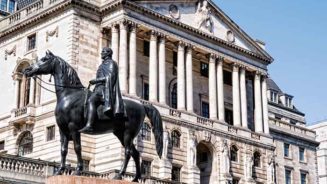The author Mark Twain was once said to have remarked “reports of my death are greatly exaggerated” and the same might apply to SIPPs, which certain high profile financial experts in the media suggested had a bleak future following the budget last month, says IFGL Pensions Technical Manager Steve Berridge (pictured).
This reaction was obviously a response to chancellor Rachel Reeve’s announcement that from April 2027 pensions would fall within the scope of inheritance tax. Some already do of course, but most personal pensions (including SIPPs) can be paid to beneficiaries free from any inheritance tax, due to the discretionary nature of the death benefit award.
So will this move kill the SIPP industry and in particular smaller SIPP providers who have already been under the microscope of the FCA, thanks to a number of high profile due diligence decisions made by the Financial Ombudsman Service, which have forced several firms into administration?
In truth the answer is that the SIPP should not be written off for the very good reason that, IHT protection aside, the product is still very tax efficient. It is worth recalling that many “experts” believed the new Labour Government was going to reduce or entirely remove the tax relief which is available on contributions. In the event they did not. Neither did they touch the tax-free cash sum, despite many commentators suggesting it would be capped at £100,000 or removed entirely.
Aside from the tax-free cash sum, which remains capped at £268,375 for most, it must not be forgotten that the investments held within a SIPP remain free from capital gains tax and income tax.
All that has happened in reality is that the pension has taken on similar tax breaks to the ISA, but with two key additional advantages:
1. That up to £60,000 can be contributed to it each tax year, if you are a UK taxpayer, have sufficient earnings and are not yet accessing your pension by way of flexi-access drawdown income payments. This is much higher than ISA annual contribution limits.
2. That contributions into pensions benefit from tax relief of up to 45%– an offer that would look attractive on any supermarket shelf!
Moving back to inheritance tax, we have yet to see the details involved with this change. We do know that it is intended that pension administrators will be required to deduct the income tax from the pension fund before any distribution is made to beneficiaries, which will inevitably make the process of paying claims much more complicated.
However, we do not know whether withdrawals from pensions will be treated in line with the current lifetime gift rules which govern the tax treatment of any money an individual gives away.
For example, if someone takes their tax-free cash sum and gives it away to a relative, will it potentially by liable for inheritance tax if the donor dies within seven years of the gift?
Ultimately, the Government’s motive with this move is to prevent pensions from being used as an inheritance tax avoidance vehicle and instead what they were designed for, which is a vehicle to provide income and benefits to the policyholder in their old age.
It’s also worth noting that there is no inheritance tax between spouses, who are the most common beneficiaries of pension pots when members die. Perhaps not the most romantic of proposals, but a sparkly ring might be a very attractive (from a tax perspective) accessory.
In the international market, if anything demand for SIPPS will increase, thanks to the removal of one of the overseas transfer charge clauses in the same budget, which will make it unlikely that many residents in the EEA/Gibraltar will be looking to transfer UK pensions to QROPS’ in the future.
As the rules become clearer, the need for good estate planning will become even more important. Hopefully this will provide an opening for sound advice from professionals. But the role of the SIPP in retirement planning should not be diminished. It has a key role and sensible tax planning can ensure that hopefully the impact of the inheritance tax changes are not as devastating as some fear.





